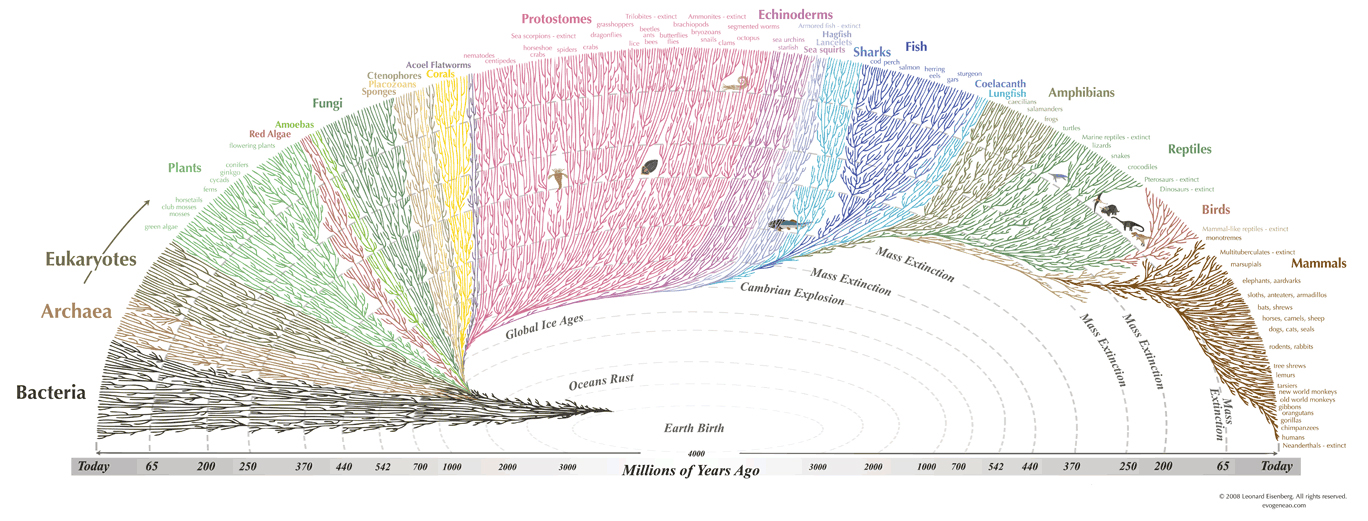Evolution is a product of the scientific process. It is often touted by critics as being “only a theory.” The irony is that if they truly understood the word theory they would not be so quick to call it that. Our text describes the word as “an explanation of natural phenomena, supported by a reliable body of data (Haviland, 20).” In the case of evolutionary theory, the basic premises of science are used to explain the development of the diversity of life. It is flexible and changes based on the introduction of new facts. This self-correcting nature is a staple of all scientific theories.
Creationism is a product of the Judeo-Christian’s biblical explanation of the universe’s creation. From a creationist’s perspective, the Holy Bible is the ultimate source for the origin of the universe. Fundamentalists consider the Holy Bible to be the literal word of their creator. In doing so they admit that God created humans in just a few days, that there was once a Great Flood that covered the entire planet, and that Earth’s age is measured in thousands (not billions) of years. It can be argued that these are all theories, but they are more likely hypotheses.
Creationism is “a doctrine or theory holding that matter, the various forms of life, and the world were created by God out of nothing and usually in the way described in Genesis (Merriam-Webster).” Though I agree it can be argued that creationism fits many of the requirements to be called a theory, it is not a scientific one. Creationism already has a pre-defined idea of how the universe was formed, and its goal is to explain it in those terms. This is practically the opposite of science in that it assumes to know the answer and attempts prove that the answer is correct.
Take gravity, for example. Gravity is just a theory, but we can prove that it exists. Drop something. You have just conducted a crude scientific experiment that further proves gravity’s existence. Using science we humans were able to figure out how gravity behaves, even if we still do not fully understand why it behaves the way it does. Perhaps in the near future we will be able to explain the inner workings of gravity, probably something like “meta-gravity” laws. There might even be “meta-meta-gravity” laws that explain meta-gravity. In fact, it is entirely possible that it could be infinitely complex.
Even if this is the case, science can and will adapt to explain it. Science has no restrictions as far as that is concerned. When humans learned that all matter was made of smaller parts, science expanded its paradigm to include molecules. When we learned that molecules were made of even smaller parts, science expanded its paradigm to include the atoms. When we learned that atoms were made of even smaller parts, science expanded its paradigm to include neutrons, protons, and electrons. And when we learned that atomic particles were made of even smaller parts, science expanded its paradigm to include subatomic particles. Now we think there are even smaller things that appear to compose the very particles that make subatomic particles that make atomic particles that make atoms that make molecules that make the matter that makes up all of us. Science, unlike Creationism, is infinitely adaptable, by definition. The greatest challenge we face is making sure we apply it appropriately.
List of Works Cited:
Haviland, William A. (2002). Cultural Anthropology (10th edition)
Merriam-Webster Dictionary (www.merriam-webster.com)

Leave a Reply